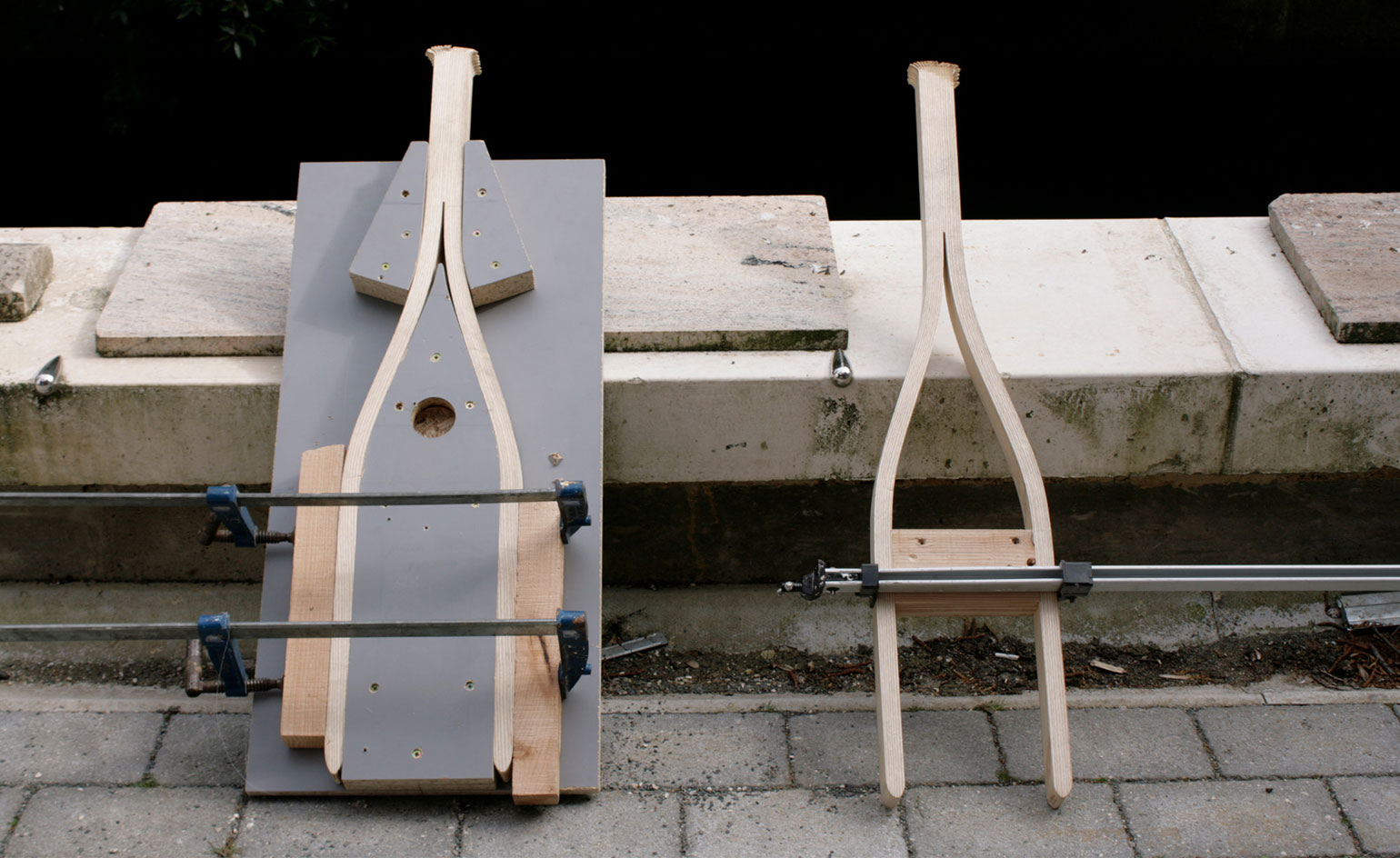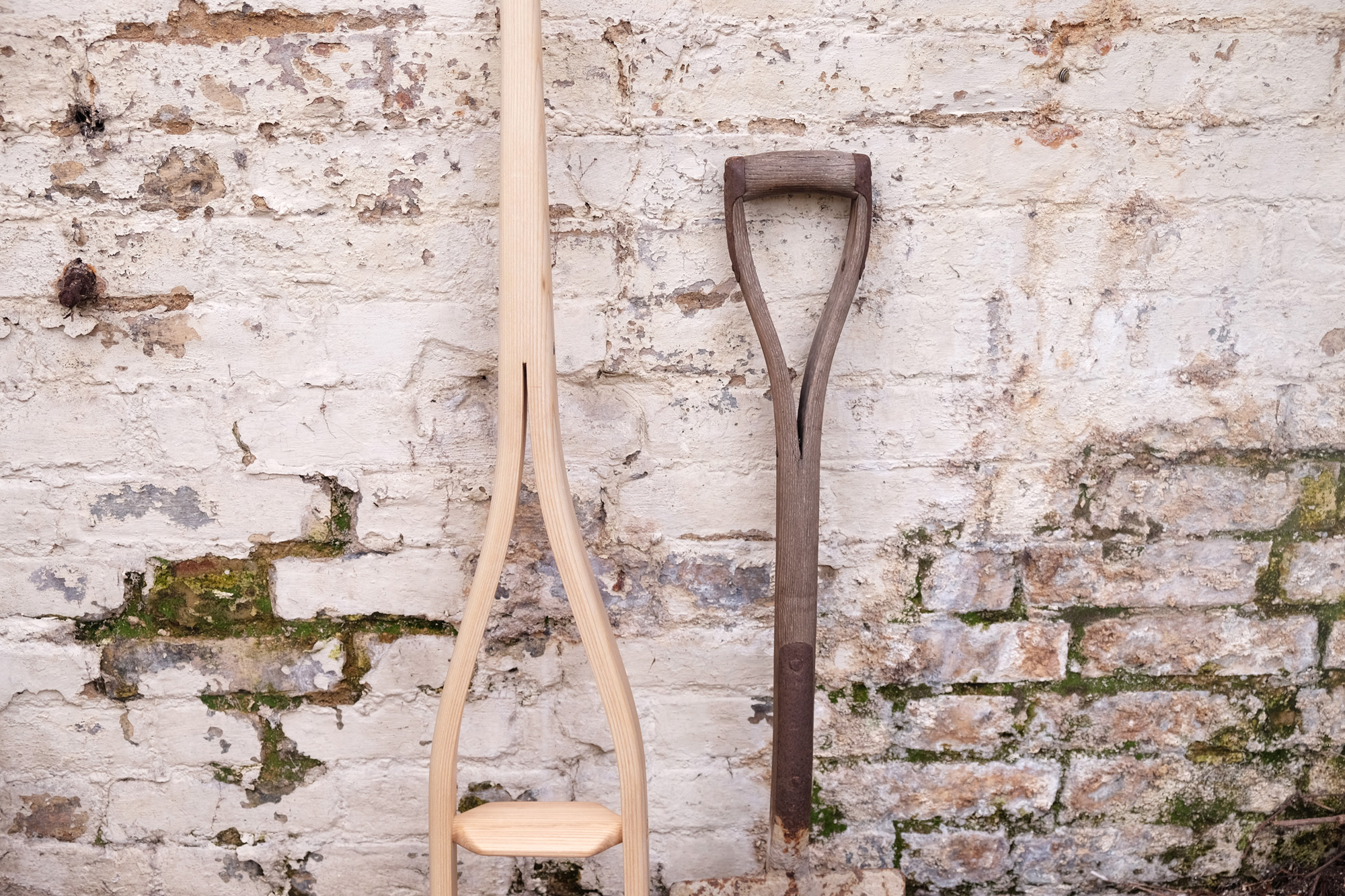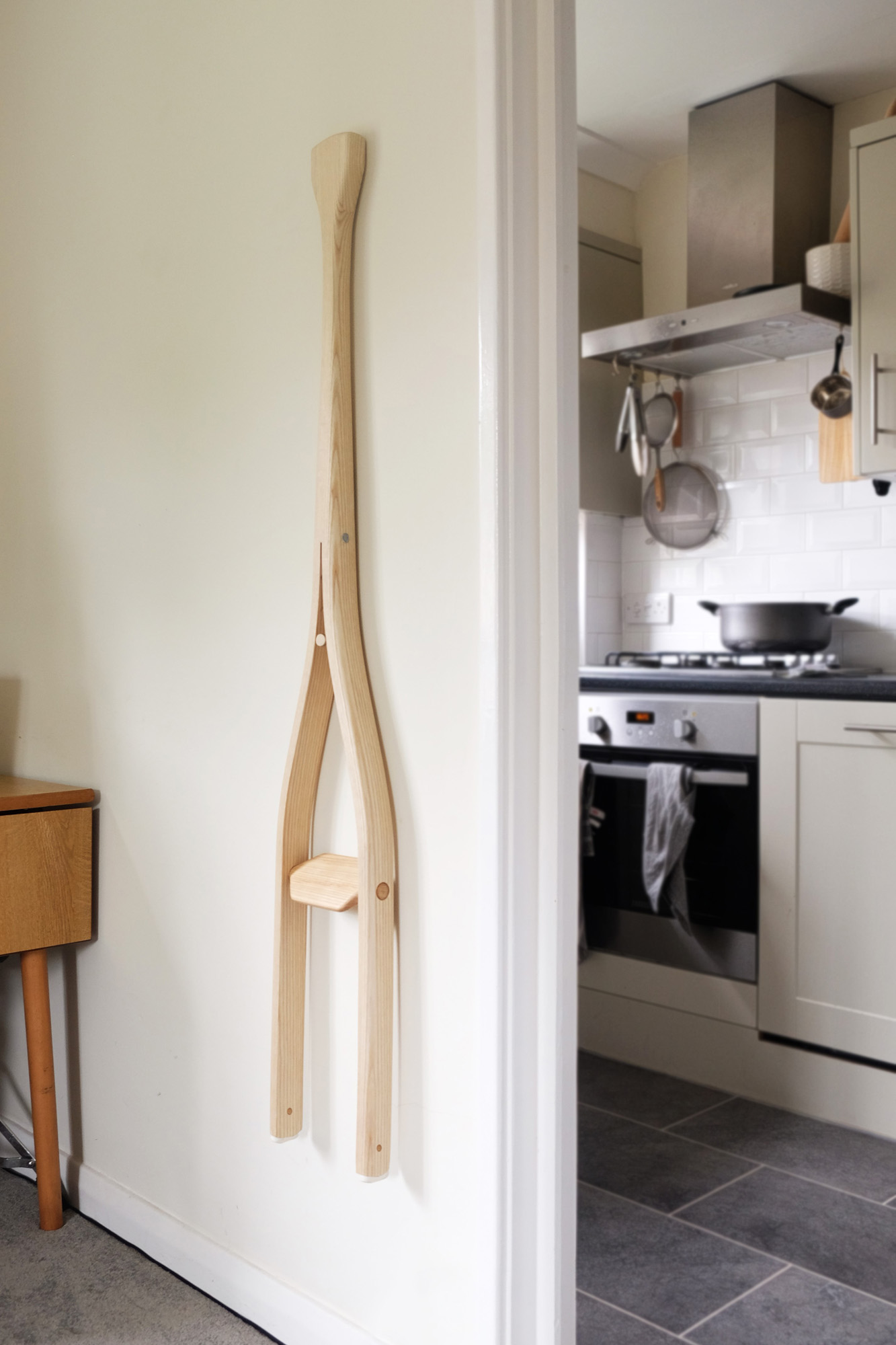Cameron Rowley’s minimal step ladder is inspired by traditional tools
Our Next Generation 2022 showcase shines a light on 22 outstanding graduates from around the globe, in seven creative fields. Here, we profile furniture design graduate Cameron Rowley, from Kingston University, UK

Receive our daily digest of inspiration, escapism and design stories from around the world direct to your inbox.
You are now subscribed
Your newsletter sign-up was successful
Want to add more newsletters?
First steps into the design world for South Africa-born, London-based designer Cameron Rowley already include being awarded the 2021 edition of The Conran Shop and Marandi Foundation Designer of the Future Award for his ‘One Step Ladder’, which he created as part of his Product and Furniture Design degree at Kingston School of Art.
‘While my African heritage impacts some of my thinking, I am heavily influenced by traditional English furniture construction, as well as objects of use such as tools and implements,’ says Rowley, who cites designers Max Lamb, Sebastian Cox and Jasper Morrison as influences on his attitude and philosophy towards design.

Drawing inspiration from everyday items and processes that don’t necessarily relate to domestic objects, Rowley’s design approach focuses on functionality and making. ‘I believe that making is an essential part of the design process. I am always making, from start to finish, and it always improves and informs my process and end product,’ he says.
‘One Step Ladder’ by Cameron Rowley

His ‘One Step Ladder’ is the result of both his extra-domestic inspirations and his passion for making. The idea, he explains, was born out of an observation that step ladders are generally employed only for a moment, and people often make use of just one step. From here, his design developed to create a compact object that responds to this behaviour.
The visual inspiration came from the wooden handle of a shovel, which Rowley turned upside down to create the step. The extended handle, he explains, ‘provides confidence while the user is up on the step, [and] it also means they do not have to stoop down to move it around, like a traditional step stool’.

For his future in design, Rowley plans to connect with Kingston classmates, whose views and approaches to making, he notes, are very similar to his own. ‘I hope to gain some valuable experience in the next few years and apply that experience in the form of a studio,’ he says. ‘It is my ambition to start a collective focused on sustainability and function.’
Dream collaborators: Sebastian Cox, Vaarni.
INFORMATION
Receive our daily digest of inspiration, escapism and design stories from around the world direct to your inbox.
Our Next Generation showcase of outstanding new talents appears in the January 2022 issue of Wallpaper* (W*273). Subscribe today!
Rosa Bertoli was born in Udine, Italy, and now lives in London. Since 2014, she has been the Design Editor of Wallpaper*, where she oversees design content for the print and online editions, as well as special editorial projects. Through her role at Wallpaper*, she has written extensively about all areas of design. Rosa has been speaker and moderator for various design talks and conferences including London Craft Week, Maison & Objet, The Italian Cultural Institute (London), Clippings, Zaha Hadid Design, Kartell and Frieze Art Fair. Rosa has been on judging panels for the Chart Architecture Award, the Dutch Design Awards and the DesignGuild Marks. She has written for numerous English and Italian language publications, and worked as a content and communication consultant for fashion and design brands.